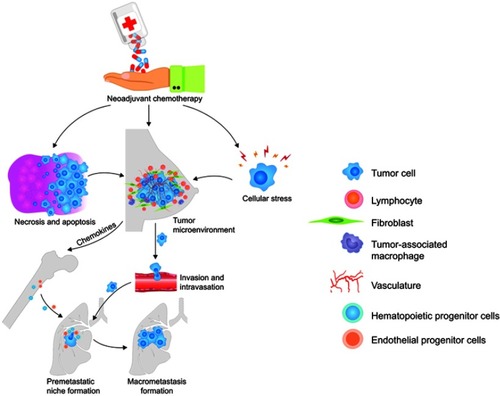Figures & data
Figure 1 Mechanisms of prometastatic changes induced by NACT in the BC microenvironment. NACT is able to change the tumor microenvironment through direct and indirect effects. Tumor cell necrosis triggers innate immune-inflammatory reactions that are a background for the development of adaptive immune response. Chemotherapeutics directly impact on the cellular composition of the tumor microenvironment and type of immune-inflammatory reactions whereas their indirect effect is related to the induction of cellular stress. The acceleration of tumor invasiveness and intravasation, as well as an increase in the number of CTCs, are one of the direct and indirect effects of NACT. NACT-stimulated recruitment of bone marrow-derived progenitor cells results in the formation of premetastatic niches and micrometastases. An increase in the number of endothelial progenitor cells and direct stimulation of angiogenesis eventually lead to the development of macrometastases.

